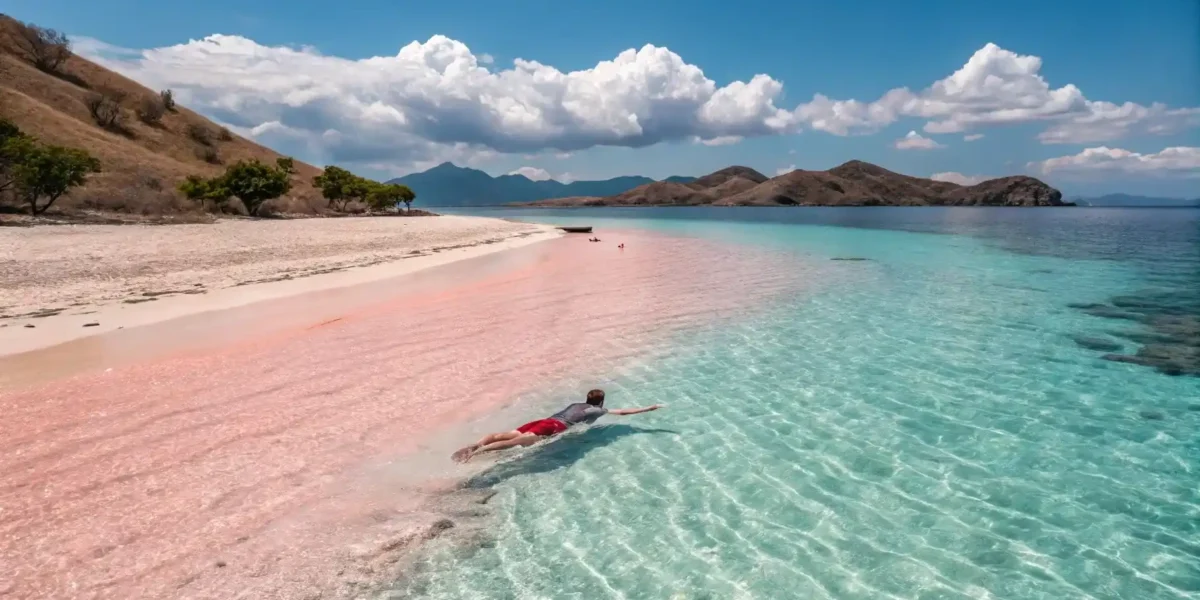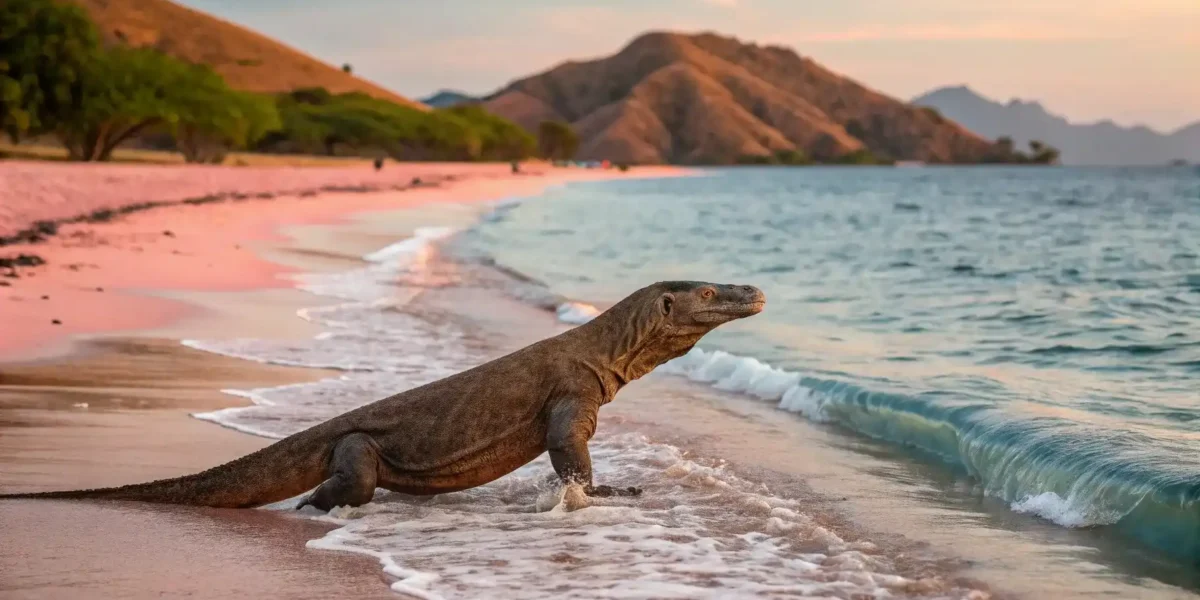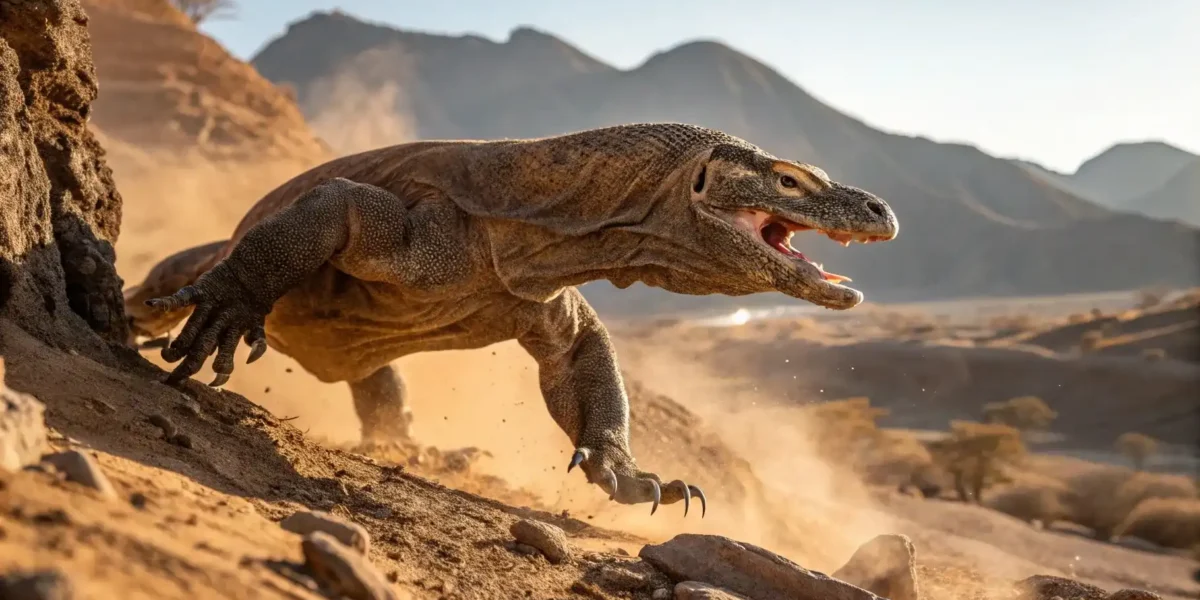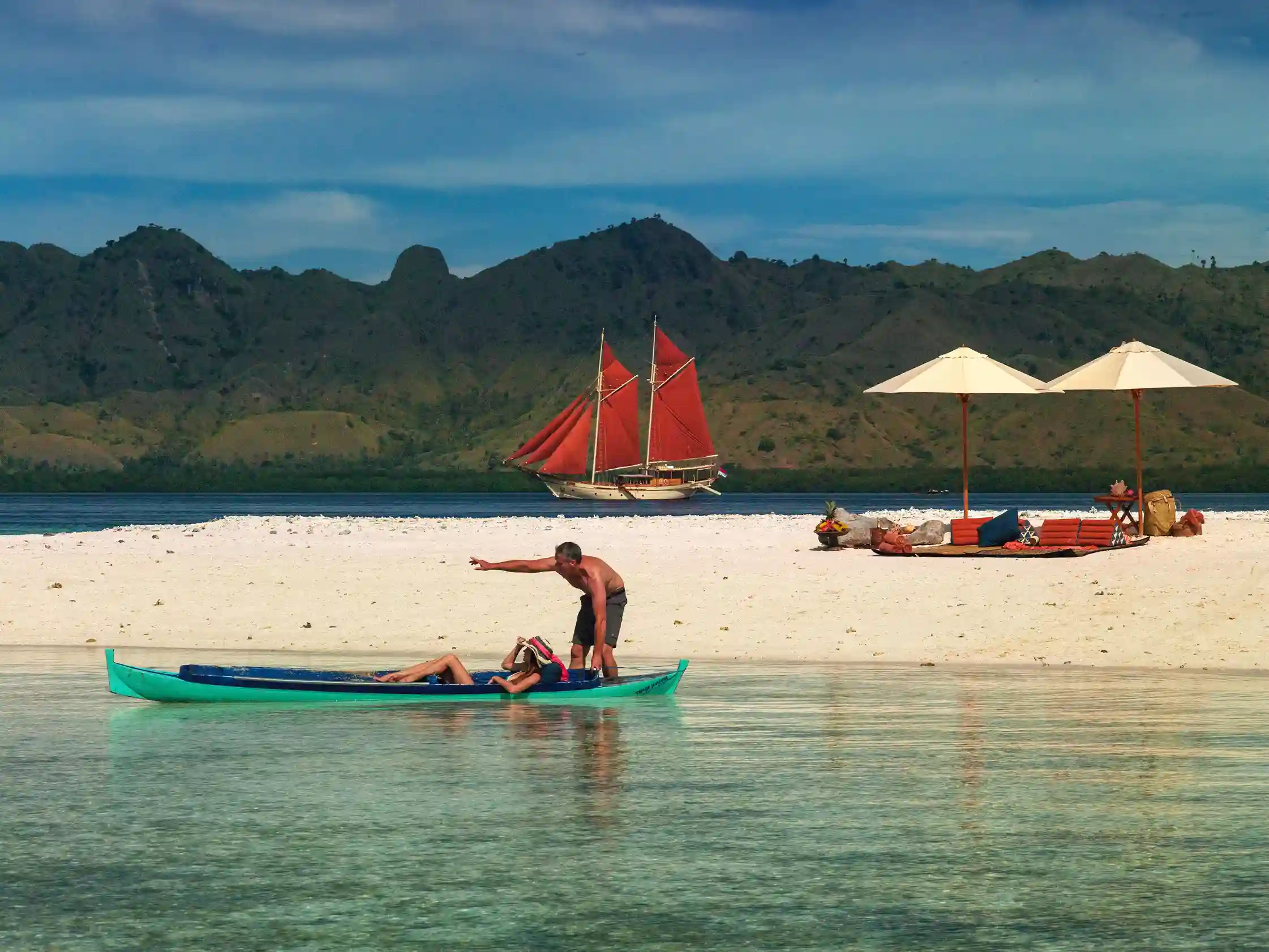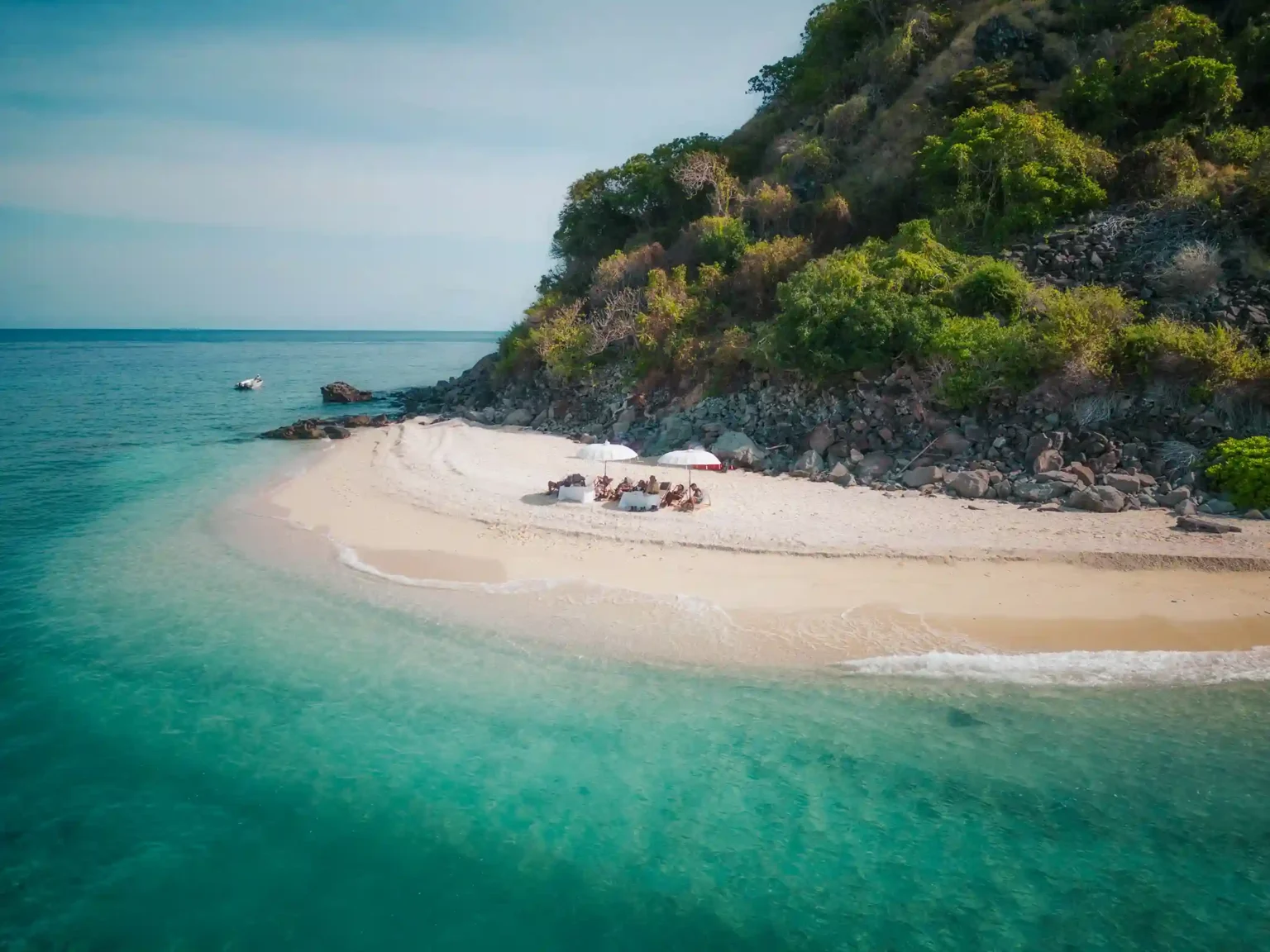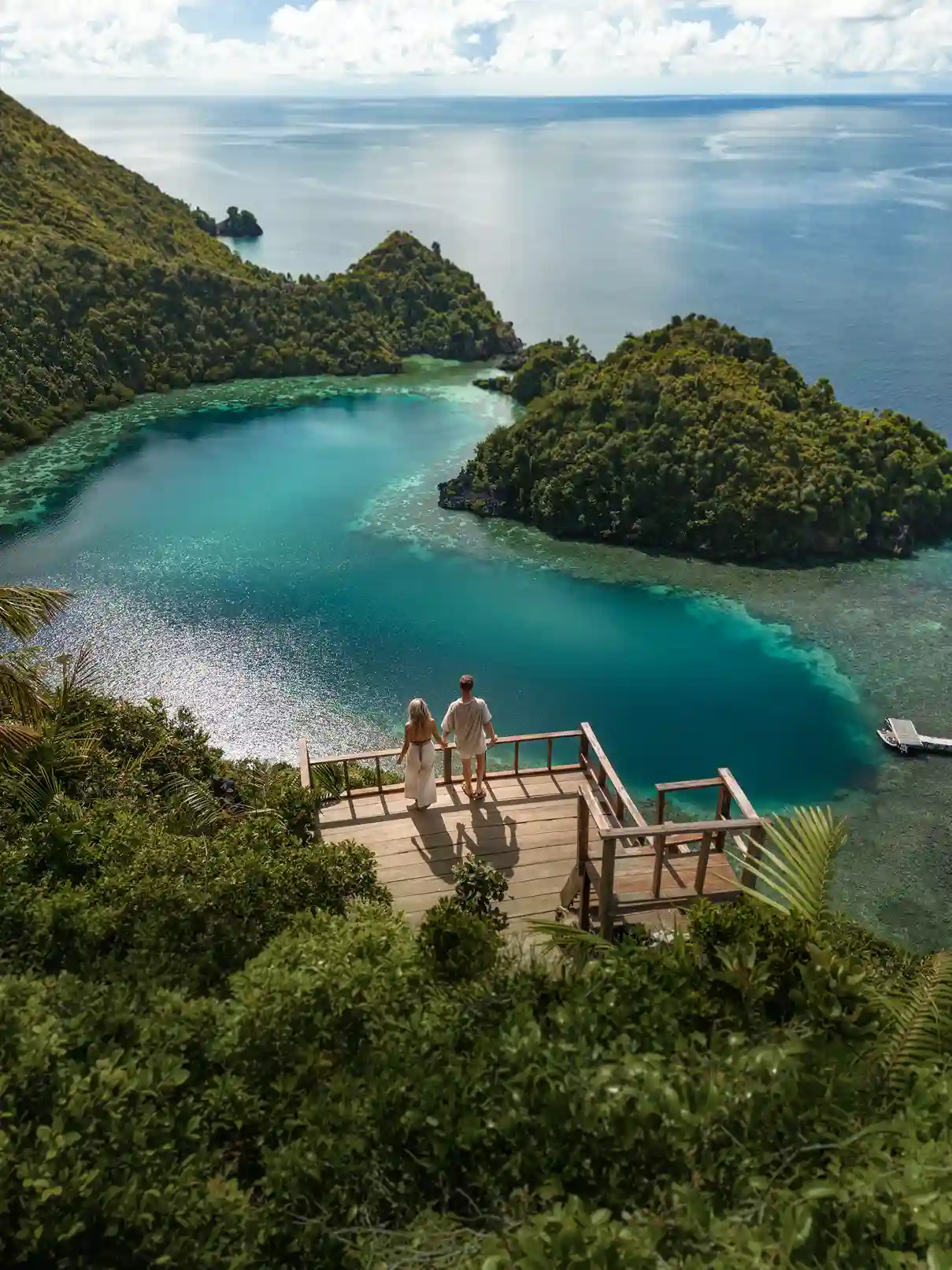Indonesia, renowned for its abundant natural wealth, is home to numerous world-recognized sites. One of the most famous is Komodo National Park, located in the province of East Nusa Tenggara. This park is the natural habitat of the Komodo dragon, the world’s largest lizard species, which is currently endangered. Covering approximately 603 km² of land and a total area of 1,817 km², this park offers more than breathtaking landscapes—it’s a living testament to unique biodiversity.
Recognized as a UNESCO World Heritage Site since 1991, Komodo National Park isn’t just vital for wildlife conservation but also symbolizes Indonesia’s rich diversity of flora and fauna. Let’s dive into the history of this national park, its unique ecosystem, and why it’s a must-visit destination.
Where is Komodo National Park?

Komodo National Park is located in the Lesser Sunda Islands, specifically in Manggarai Barat Regency, East Nusa Tenggara Province. The park spans three major islands—Komodo Island, Rinca Island, and Padar Island—as well as several smaller surrounding islets.
With its diverse topography ranging from savannah grasslands to vibrant coral reefs, the park is perfect for a variety of activities such as trekking, snorkeling, and diving.
The History of Komodo National Park
The story of Komodo National Park began in the early 20th century when the existence of the Komodo dragon first caught the world’s attention. In 1910, Dutch colonial officer Lieutenant Steyn van Hensbroek led an expedition to Komodo Island after hearing local tales about “giant lizards.” This discovery soon sparked deeper scientific interest.
In 1912, zoologist Peter Ouwens published the first scientific description of the Komodo dragon, solidifying its place in biological research. This set the stage for initiatives to protect its habitat.
Here’s a timeline of the park’s establishment:
- 1938: Portions of Komodo and Rinca Islands were declared nature reserves to protect the dragons and their ecosystem.
- 1977: UNESCO designated the area as a Biosphere Reserve, recognizing its unique biodiversity.
- 1980: Komodo National Park was officially established to safeguard the dragons and the entire ecosystem.
- 1991: The park gained status as a UNESCO World Heritage Site, highlighting its global importance.
Komodo Dragon: The Icon of Komodo National Park
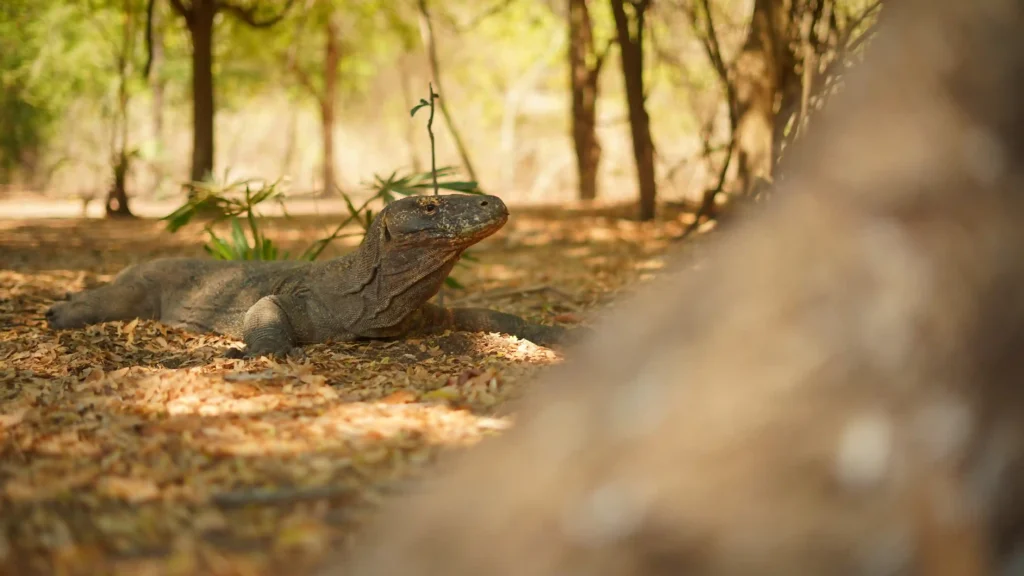
The Komodo dragon (Varanus komodoensis) is the star attraction of the park. These giant lizards can grow up to 3 meters (10 feet) long and weigh as much as 70 kilograms (150 pounds), making them the apex predators in their habitat. Unfortunately, their population is declining due to climate change and cannibalistic tendencies.
Currently, the Komodo dragon population is estimated at 3,000–5,000 individuals, primarily found on Komodo Island and Rinca Island. This emphasizes the critical role of conservation efforts in the park.
Fun facts about Komodo dragons:
- Their saliva contains toxic bacteria and venom that help subdue their prey.
- They can smell carrion from as far as 5 kilometers (3 miles) away.
- Komodo dragons are excellent swimmers, enabling them to travel between islands.
Read more: 11 Fascinating Komodo Dragon Facts That Will Surprise You – Luxury Tours to See Them
Biodiversity: A Blend of Flora and Fauna
Fauna in Komodo National Park
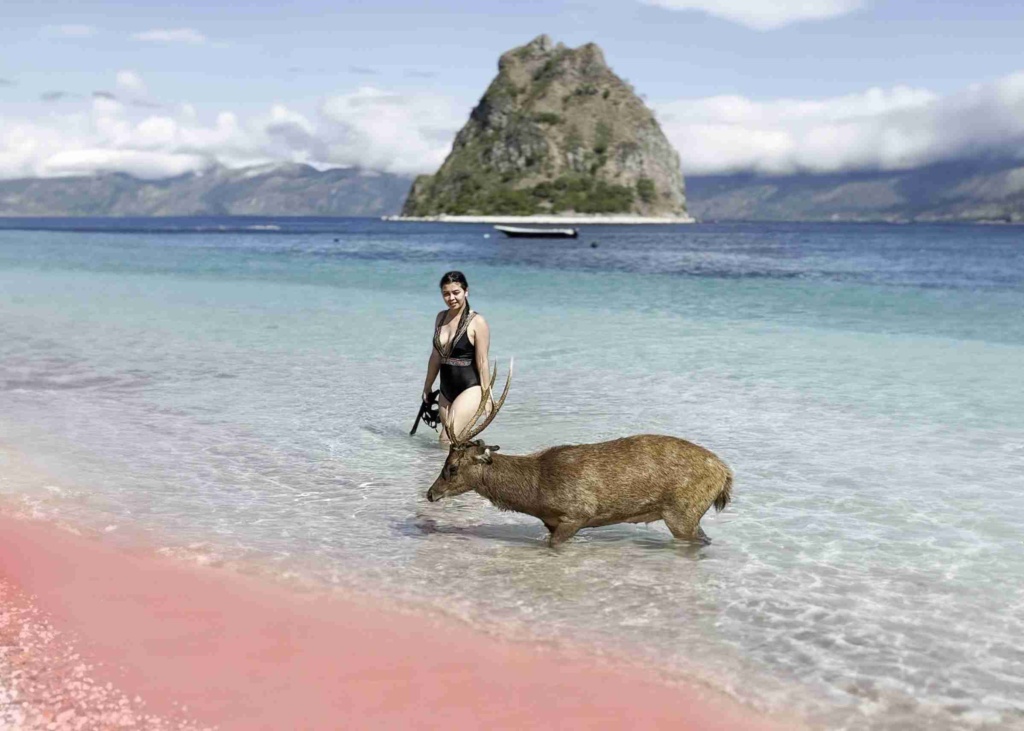
Komodo National Park is one of the world’s most biodiverse areas. The park is home to at least 277 animal species, a fascinating mix of fauna from both Asia and Australia. Among these are:
- 32 mammal species, including the Timor deer and wild boar.
- 128 bird species, such as eagles and hornbills.
- 37 reptile species, including the iconic Komodo dragon.
Flora and Ecosystem: A Unique Blend
The park’s ecosystem is influenced by its tropical climate, with long dry seasons, high temperatures, and low rainfall. Its location at the transition zone between Asia and Australia creates an interesting variety of plant life. Here are the main vegetation types found in the park:
- Grasslands and Savannahs: About 70% of the park is covered by grasslands and savannahs, home to various grasses like Setaria adhaerens, Chloris barbata, and Heteropogon contortus. The lontar palm (Borassus flobellifer) is a common tree species in the area.
- Tropical Dry Forests: Around 25% of the park consists of tropical dry forests, mainly in areas less than 500 meters above sea level. The forest is home to species like Schleichera oleosa (Indian Lauan), Tamarindus indica (Tamarind tree), and Sterculia foetida (Java olive).
- Marine Ecosystem: Komodo National Park is part of the Coral Triangle, a marine area known for its exceptional biodiversity. The waters here are home to more than 1,000 species of fish, 260 types of coral, and various marine mammals, including whales and dolphins.
Why You Should Visit Komodo National Park
Komodo National Park is not just a beautiful destination; it offers a truly unique experience that brings you closer to nature. In addition to observing the Komodo dragon in its natural habitat, you can engage in a variety of exciting activities, such as:
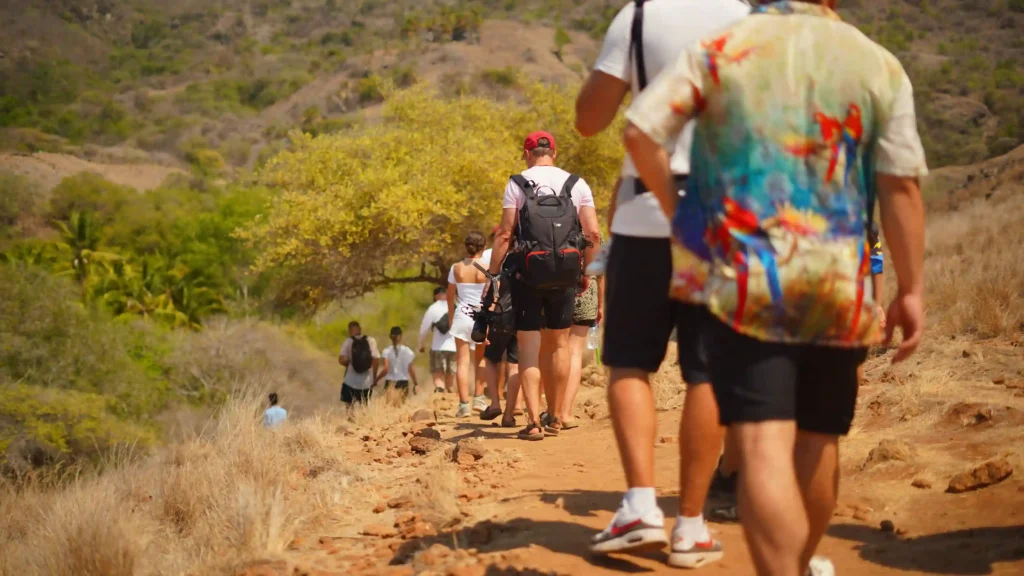
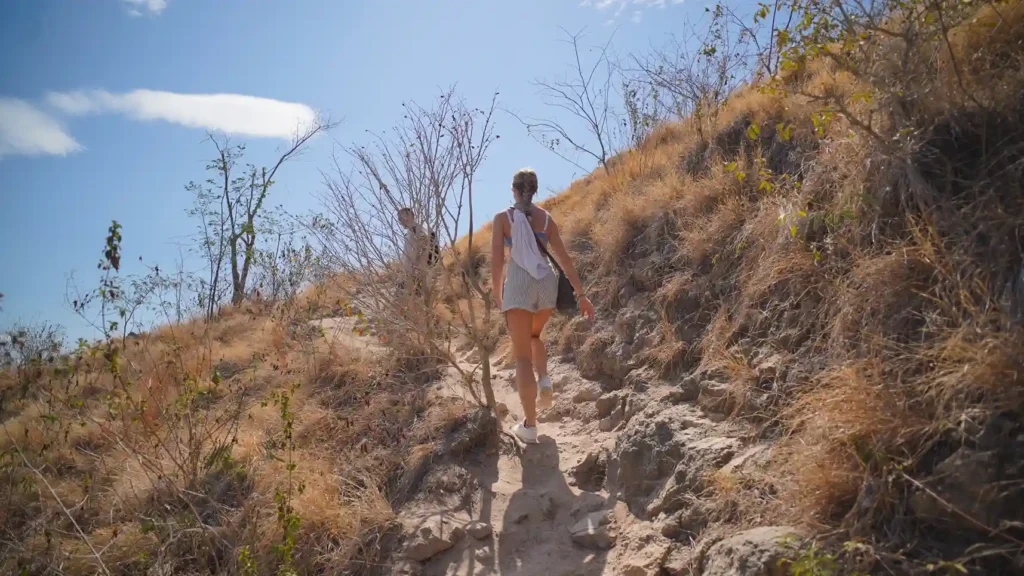

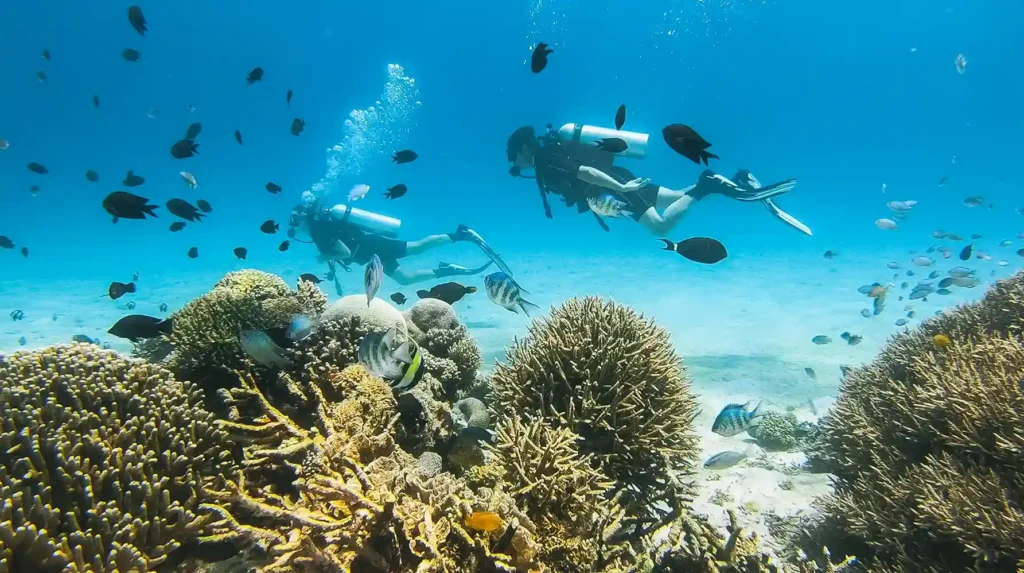
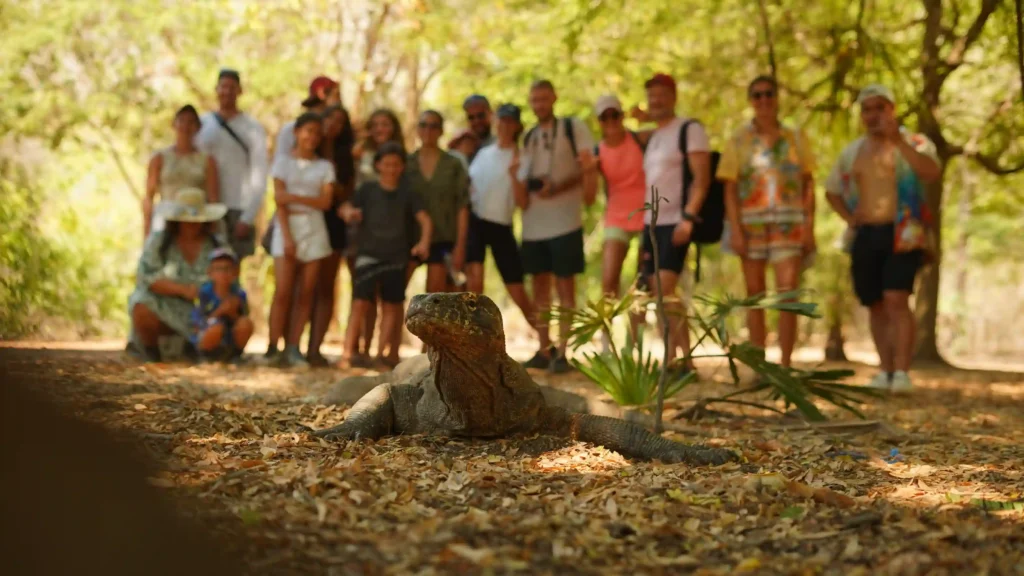
- Trekking: Explore Komodo and Rinca Islands with a professional ranger guide.
- Snorkeling and Diving: Experience the underwater beauty at spots like Pink Beach and Manta Point.
- Hiking Padar Island: Hike to the top of Padar Island for stunning panoramic views.
Explore Komodo National Park with Komodo Luxury
Komodo National Park is not just a tourist attraction but also an essential symbol of conservation and the natural beauty of Indonesia. If you’re looking to explore the area in comfort and style, Komodo Luxury offers a range of exclusive Komodo Island tour packages.
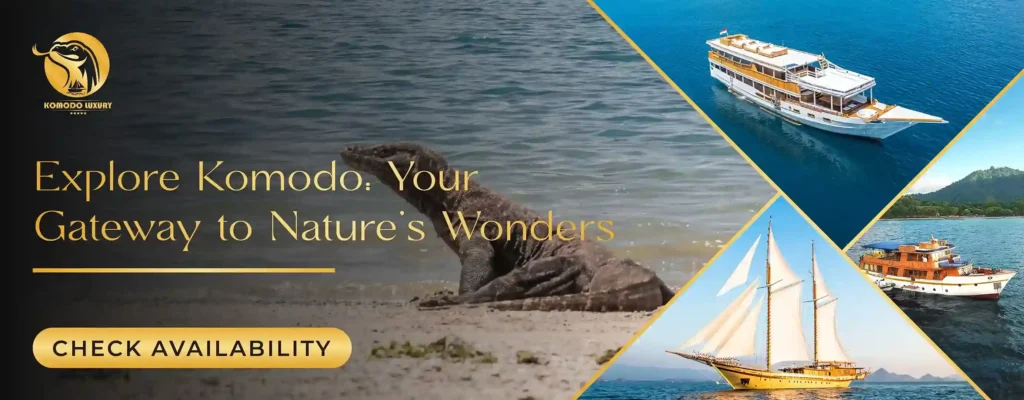
From luxurious phinisi yacht cruises to unforgettable diving experiences, Komodo Luxury ensures that your trip to this World Heritage Site is truly special. Don’t miss the chance to explore one of the world’s most remarkable natural wonders. Book your adventure today with Komodo Luxury and enjoy a vacation full of adventure and discovery!








